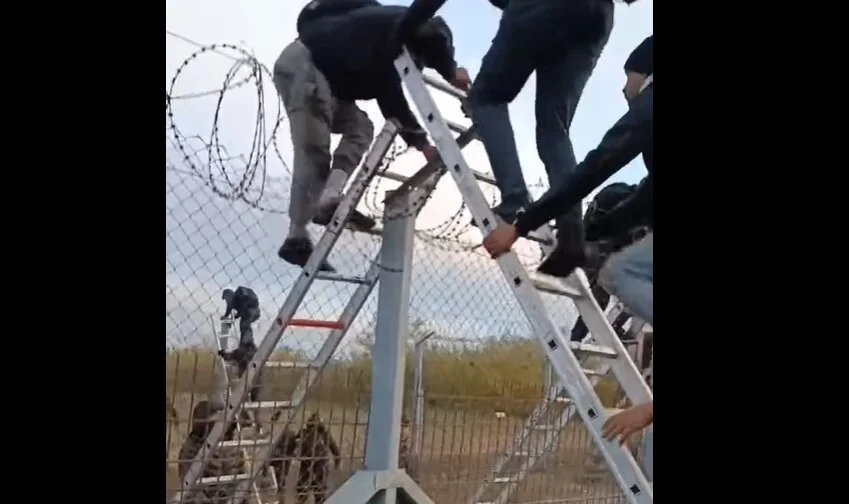Change language:
Hungary has demonstrated how to protect the border

Hungary has demonstrated how to protect the border, Bence Rétvári, parliamentary state secretary of the interior ministry, said on Thursday.
The European Union’s external land borders span 440km, while its internal borders add up to 7,500km, and it is obvious that it is the shorter section that needs to be protected against illegal migration, Rétvári told public radio.
Rétvári spoke in connection with a meeting of the EU’s Justice and Home Affairs Council he attended this week, where he played a video of the attacks Hungarian police officers have to endure from armed illegal migrants on the southern border.
Hungary’s border protection works but will only be effective in protecting the whole of Europe if it cannot be bypassed, the state secretary said. “This is what should be done on the Bulgarian and Greek borders, too,” he added.
Rétvári said there had been attempts to talk the Hungarian delegation out of playing the video, but once the video was played, it was met with “stunned silence”. Many at the meeting, he said, had snapped photos of the scenes in the video or asked for a copy.
“The reason why they were stunned by the video was because in their mind the job of border guards isn’t to protect the border but to help illegal migrants submit their asylum applications,” Rétvári said.
He said western European media did not report on what is happening on Hungary’s southern border, “and whatever isn’t covered in the papers doesn’t exist to decision-makers, either”.
The state secretary said Brussels was working on adding exceptions to the EU’s planned migration directive that provide a basis for taking in migrants. He added that Hungary was hopeful the central European member states could reach an agreement on the need to protect the bloc’s external border in the region.
Read also:
- Hungarian police beat a German national with a baton in Budapest?
- Truck drivers flooded Hungary, border crossing fell: queue lasts 48h
Source: MTI








Indeed. Now let us ask the question why other countries have refused to follow Hungary’s example but have instead been allowing literally millions of the lowest-quality illegal aliens to flood through their borders, supported by the E.U.
@michaelsteiner – something to do with stipulations of international law and courts passing down judgements:
https://www.politico.eu/article/eus-top-court-slashes-hungarian-law-outsource-aslyum-applications/
Not everyone is keen to break laws, regulations and ignore court rulings. And remember … We signed up to these international laws and regulations, as well as the jurisdiction of the ECJ.
Then there is the European Convention on Human Rights (ECHR) where Hungary features with some regularity… Our Politicians thought to leave the ECHR, in times past (as does the UK’s current government), to be rid of meddlesome regulations. However – be careful what you wish for. The authorities would never ever think of curbing YOUR human rights, right?
For the UK – quick read may be illuminating:
https://www.gov.uk/government/collections/human-rights-the-uks-international-human-rights-obligations
The substantive rights and freedoms contained in the Convention are:
Article 2: the right to life
Article 3: the prohibition of torture and inhuman or degrading treatment
Article 4: the prohibition of slavery and forced labour
Article 5: the right to liberty and security
Article 6: the right to a fair trial
Article 7: the prohibition of retrospective criminal penalties
Article 8: the right to private and family life
Article 9: the freedom of thought, conscience and religion
Article 10: the freedom of expression
Article 11: the freedom of assembly and association
Article 12: the right to marry
Article 13: the right to an effective national remedy for breach of these rights
Article 14: the prohibition of discrimination in the protection of these rights
The UK has also ratified Protocol No. 13 to the Convention on the abolition of the death penalty in all circumstances, as well as
Protocol No. 1, which contains three additional rights:
Article 1 of Protocol No.1: the right to free enjoyment of property
Article 2 of Protocol No.1: the right to education
Article 3 of Protocol No.1: the right to free and fair elections